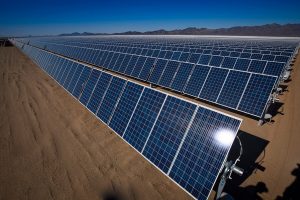Solar panels have emerged as a beacon of hope for a greener future in a world where sustainable energy solutions are gaining prominence. Yet, behind the scenes of the sun’s radiant promise lies a group of unsung heroes – solar panel installers. These professionals play a pivotal role in turning solar dreams into reality, making renewable energy accessible to homes and businesses alike. This article delves into their essential function, responsibilities, and the impact they have on advancing sustainability.
Understanding Solar Energy and Its Benefits
Harnessing the Power of the Sun
At its core, solar energy harnesses the sun’s light and converts it into electricity through photovoltaic cells. This process generates clean power and reduces reliance on finite fossil fuels, thus contributing to a cleaner environment.
Environmental and Economical Advantages
Solar energy offers a dual advantage of environmental and economic benefits. By reducing carbon emissions and curbing pollution, solar power helps combat climate change. Additionally, solar panels lead to potential cost savings, allowing consumers to generate electricity and potentially sell excess energy back to the grid.
The Vital Role of Solar Panel Installers
Bringing Solar Energy to Life
Solar installers are the linchpin that brings solar energy to life. Their expertise ensures that solar panels are strategically placed to capture the maximum sunlight and generate optimal energy output. This careful placement enhances the efficiency and overall performance of the solar system.
Ensuring Efficiency and Performance
Beyond installation, solar panel installers play a role in ensuring the system’s long-term efficiency. Aligning panels correctly minimizes energy loss due to shading or suboptimal positioning. This attention to detail improves the system’s longevity and helps customers maximize their investment.
 Steps Involved in Solar Panel Installation
Steps Involved in Solar Panel Installation
Site Assessment and Design
Before installation begins, solar panel installers conduct thorough site assessments. They analyze factors such as sun exposure, shading, and roof orientation to determine the best configuration for optimal energy production. Tools like solar maps and shading analysis software aid in this process.
Installation Process
The installation process involves multiple steps, starting with mounting solar panels onto the designated area. Installers must consider factors like roof type, angle, and structural integrity. Attention to detail during this phase ensures the safety and stability of the panels.
Wiring and Connection
Connecting solar panels to the electrical system requires specialized knowledge to ensure safety and compliance with regulations. Solar panel installers are well-versed in the intricacies of electrical wiring, guaranteeing that the system operates seamlessly and safely.
Testing and Quality Assurance
Once installation is complete, thorough testing and quality assurance measures are carried out. Installers verify that each panel functions correctly and monitoring systems are set up to track energy production. These measures assure customers that their solar systems are performing as expected.
The Importance of Training and Certification
Acquiring Specialized Knowledge
The complexity of solar panel installation demands a high level of technical expertise. Solar panel installers undergo training to acquire specialized knowledge in electrical systems, safety protocols, and advanced installation techniques.
Certifications and Accreditation
Recognized certifications and accreditations validate an installer’s proficiency and adherence to industry standards. Certifications from organizations such as the North American Board of Certified Energy Practitioners (NABCEP) signify a high level of expertise and professionalism.
Navigating Challenges and Innovations
Addressing Roof Compatibility
Solar panel installation has challenges, mainly when dealing with different roof types and materials. Innovative solutions, such as ballasted racking systems for flat roofs or integrated panels for historical buildings, allow installers to overcome these obstacles while maintaining the structure’s integrity.
Embracing Technological Advancements
Solar panel installers must stay updated with the latest innovations as technology evolves. Bright panels that optimize energy production, energy storage systems, and advanced monitoring tools are shaping the future of solar installations. Installers who embrace these innovations can offer cutting-edge solutions to their customers.
Contributing to a Sustainable Future
Reducing Carbon Emissions
The cumulative impact of solar panel installations is significant in the fight against climate change. Solar panel installers play a vital role in reducing carbon emissions and mitigating environmental damage by converting sunlight into clean electricity.
Empowering Energy Independence
Solar energy empowers individuals and businesses to become self-reliant in their energy needs. Solar panel installers enable energy independence by providing the means for generating electricity on-site. This reduces dependency on centralized power sources and contributes to a decentralized and resilient energy grid.
Conclusion
Solar panel installers are the silent architects of a sustainable future. Their expertise in site assessment, installation, and maintenance ensures that solar energy becomes a tangible reality for consumers. By leveraging technological advancements and embracing innovation, solar panel installers are shaping the landscape of renewable energy. As the world moves towards a cleaner and more sustainable future, these professionals are a beacon of hope, illuminating the path towards a greener tomorrow.

